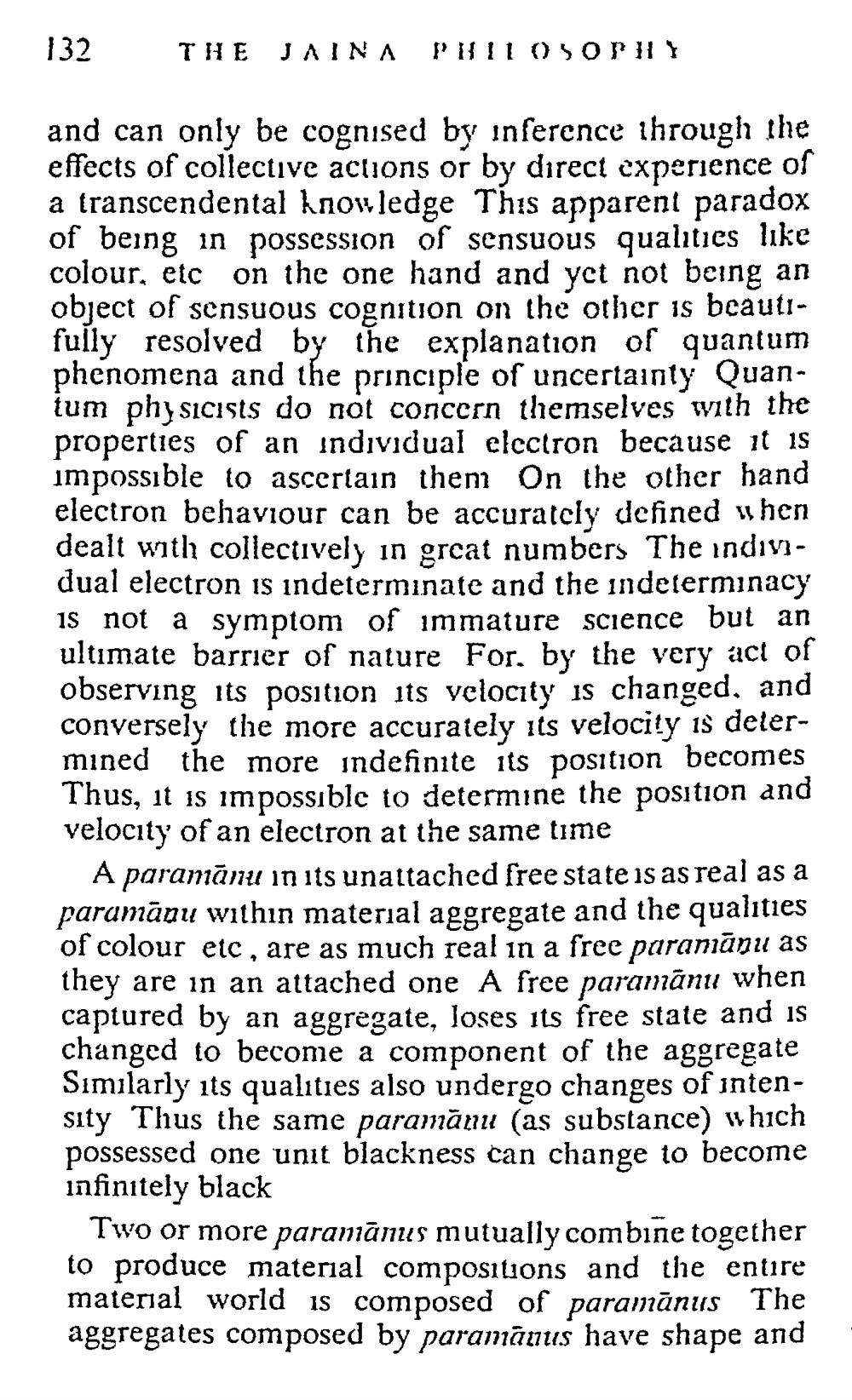________________
132
THE JAINA PHILOSOPily
and can only be cognised by inference ihrough the effects of collective actions or by direct experience of a transcendental knowledge This apparent paradox of being in possession of sensuous qualities like colour, etc on the one hand and yet not being an object of sensuous cognition on the other is beautifully resolved by the explanation of quantum phenomena and the principle of uncertainty Quanium physicists do not concern themselves with the properties of an individual electron because it is impossible to ascertain then On the other hand electron behaviour can be accuratcly defined when dealt with collectively in grcat numbers The individual electron is indeterminate and the indeterminacy is not a symptom of immature science but an ultimate barrier of nature For. by the very act of observing its position its vclocity is changed, and conversely the more accurately its velocity is delermined the more indefinite its position becomes Thus, it is impossible to determine the position and velocity of an electron at the same time
A paranānu in its unattached free state is as real as a paramānu within material aggregate and the qualities of colour etc, are as much real in a free paraniānu as they are in an attached one A free paramānu when captured by an aggregate, loses its free state and is changed to become a component of the aggregate Similarly its qualities also undergo changes of intensity Thus the same paramām (as substance) which possessed one unit blackness can change to become infinitely black
Two or more paramānus mutually combine together to produce material compositions and the entire material world is composed of paramānus The aggregates composed by paramānus have shape and




